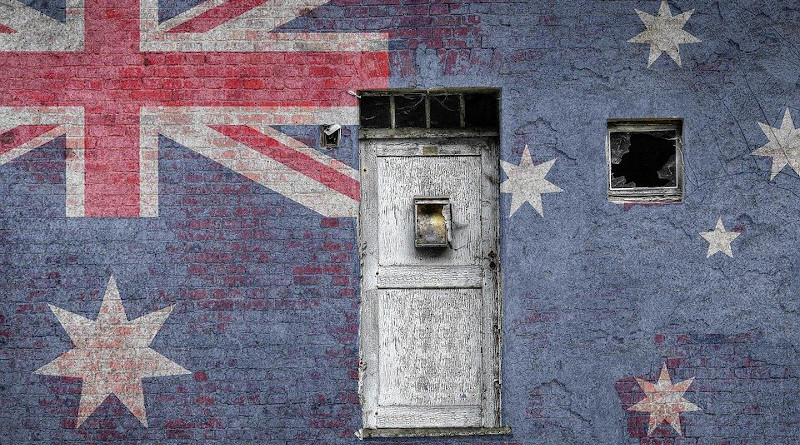A Copper’s Skewed Logic: Politicising Palestinian Visa – OpEd
If only we could say that Peter Dutton, Australia’s federal opposition leader and curator of bigoted leanings, was unusual in assuming that granting humanitarian visas to Palestinians might be problematic. But both he, and his skew-eyed spokesman on home affairs, James Patterson, have concluded that votes are in the offing. Refugees may be accepted from the Ukrainian-Russian War, as long as they are Ukrainian, but anything so much as a whiff of a Palestinian fleeing the Israel-Hamas conflict is bound to be concerning. Ukrainians are noble victims; the latter might be terrorist sympathisers or Hamas militants.
This view started being floated in November last year, when Dutton began warning the public that visitor visas for Palestinians could result in a calamity. (At that point, 860 visas had been issued to Palestinians.) “The inadequacy of these checks could result in a catastrophic outcome in our country,” he foamed. “Taking people out of a war zone without conducting the checks, particularly those that are available to us in the US, is reckless.”
No concern was voiced about the possibility that Israelis, who had also been offered 1,793 visas, might pose a problem to the heavenly idyll of Australian security. It is also worth mentioning that Dutton, when home affairs minister, approved over 500 visas a week to Syrians fleeing the civil war. Ditto the granting of 5,000 visas to Afghans the month the Taliban resumed control of Kabul in the aftermath of retreating Western armies.
Dutton’s arithmetic is that of the typical copper: simple, direct, amateurish. Among the Palestinians, “one person, or could be 10 people, I don’t know” might be of concern. His concerns are feverishly listed: “Have interviews been conducted, do we know people’s ideologies, do we know their interest in the west, why they want to come to Australia.” This template would be applicable to every group of visitors or migrants seeking to come to Australia at any one point. No one is likely to say on their visa application: “I come to see your new country and hope to commit atrocities.”
Given the number of conflict zones on Planet Earth, Dutton was offering an obtuse statement calculated to boost flagging popularity. It was also timed within a matter of hours after the declaration of a four-day ceasefire in Gaza. While proving, at times, sketchy in her role as Home Affairs Minister, Clare O’Neil was close to the mark in stating that, “Dutton is a reckless politician who will do and say anything to score political points – even if it puts the national security of Australians at risk.”
But Dutton did not want to be dismissed as a paranoid former police officer who sees criminals everywhere and innocence as a constipated afterthought. “The prime minister here needs to hit the pause button – I’m not saying people shouldn’t come at some point – but people should come when all the checks are conducted.”
Again, a strange sentiment, given that visa applicants tend to face a series of tests that are more demanding than most when seeking to visit the Down Under Paradise where perfection is assumed. “If a visa applicant is assessed as posing a risk to the health, safety or good order of the Australian community, their visa may be considered for refusal,” were the dull words of a government spokesperson.
With the arrival of irregular migrants on the shores of Western Australia this month, cockeyed bigotry again assumed its role on the podium of Australian politics. Seeking to tie the arrivals as connected with shoddy security credentials, the opposition fanned out the implications of granting up to 2,000 visas for Palestinians, a fact seen as particularly galling to the shadow home affairs minister. “In the middle of an unprecedented antisemitism crisis, the government should be taking much greater care in granting visas to people from a war zone run by a terrorist organisation,” bleated Patterson. “How can they possibly assure themselves there is not one Hamas supporter among them? And how will it help social cohesion if they manage to slip through?”
By this logic, no one should ever leave a war zone, an area of devastation, a territory blighted by terror. You just might be a regime supporter, a sympathiser, despite suffering possible harm, even death. But there is an inadvertent slant coming through in Patterson’s mangled world view: Palestinians, having been maimed, murdered and traumatised, might wish to take out their grievance on a foreign power, possibly one sympathetic to Israel. Ignore the survival imperative, the desire to find, rather than abandon, security; focus, instead, on the motivation for vengeance. Even this view suffers for one obvious point: those wishing to avenge their families and friends are bound to wish to stay in Gaza and the West Bank, rather than flee and plot from afar.
With the current arrivals from Gaza – some 340 or so have managed to drip themselves from the Palestinian territories – the bedwetting fantasies of terror being induced by the opposition seem absurd and callous. But absurdity is a proven calculus for electoral success – at least sometimes.

